
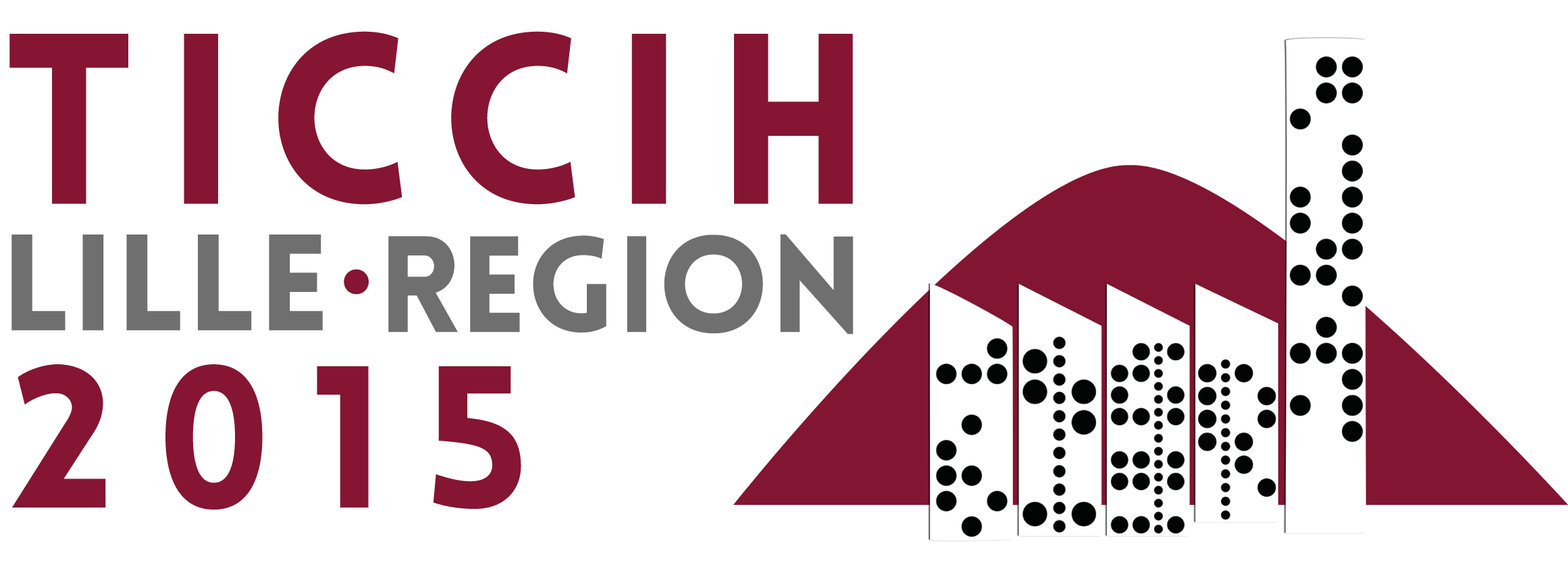

XVIth INTERNATIONAL TICCIH CONGRESS 2015
With the support of the French Ministry of Culture and Communication
Industrial Heritage in the Twenty-First Century, New Challenges
Lille, Campus Moulins, Université de Lille - Droit et santé
6-11 September 2015
 Join us on Facebook: "Congres Ticcih Lille 2015
Join us on Facebook: "Congres Ticcih Lille 2015https://www.facebook.com/congresticcih2015
Download the Programme:
Download the Abstracts:
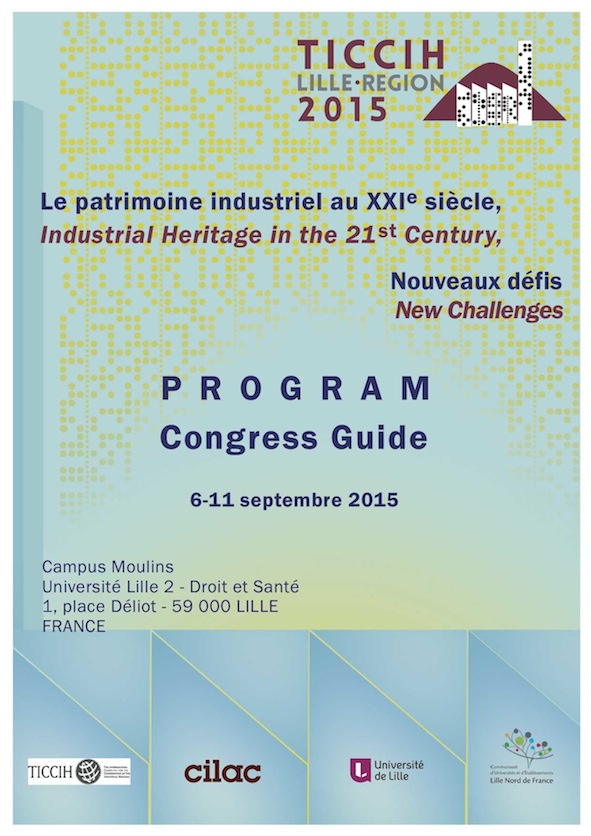
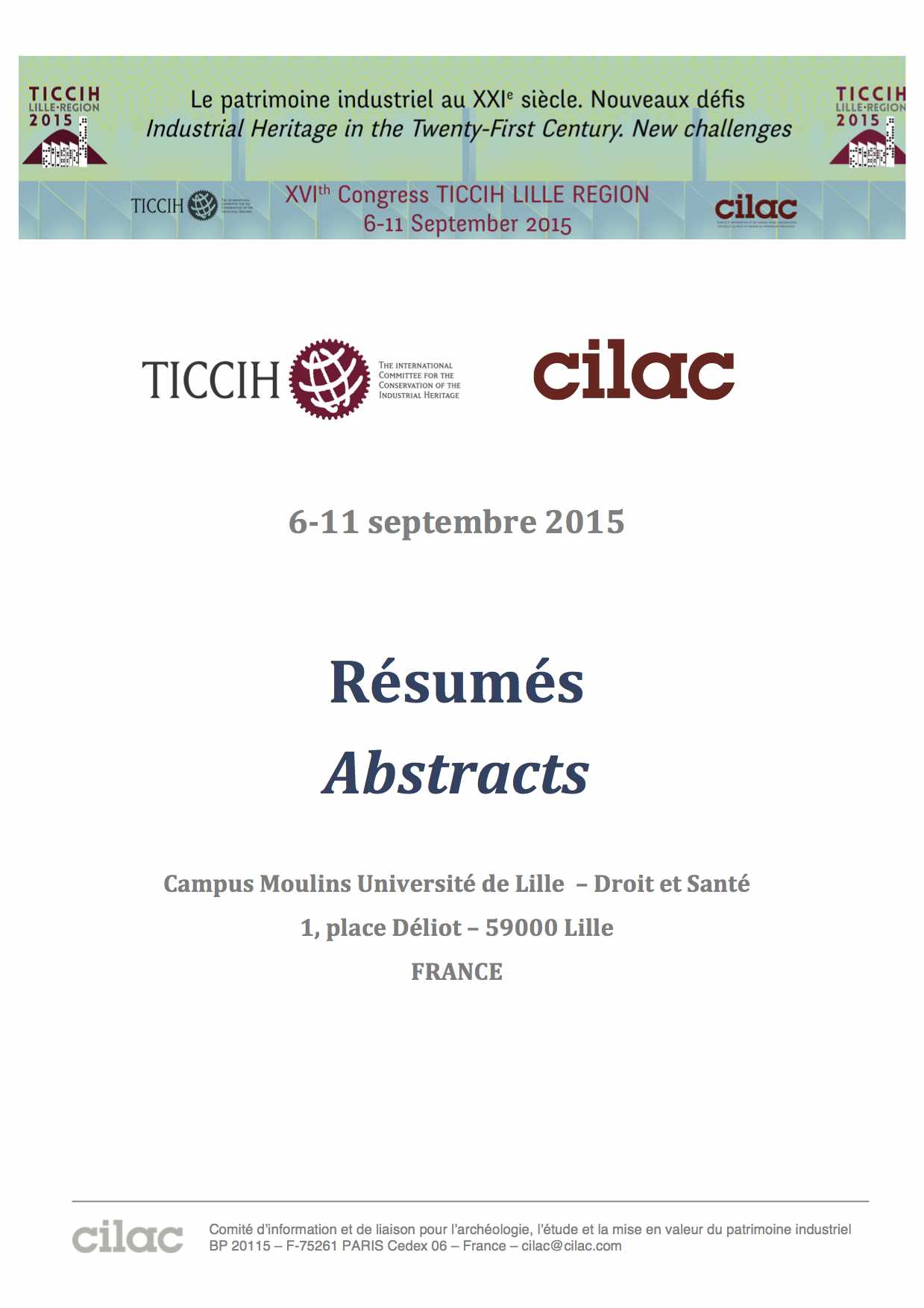
_________________________________________________________
>> REGISTRATION (online registration is now closed)
From 6 September, registration with payment on site will be possible during the congress opening hours (see program).
The registration for the visit of Roubaix on tuesday afternoon and the tour on the Mining basin World Heritage on thursday is not possible anymore.
_______________________________________________


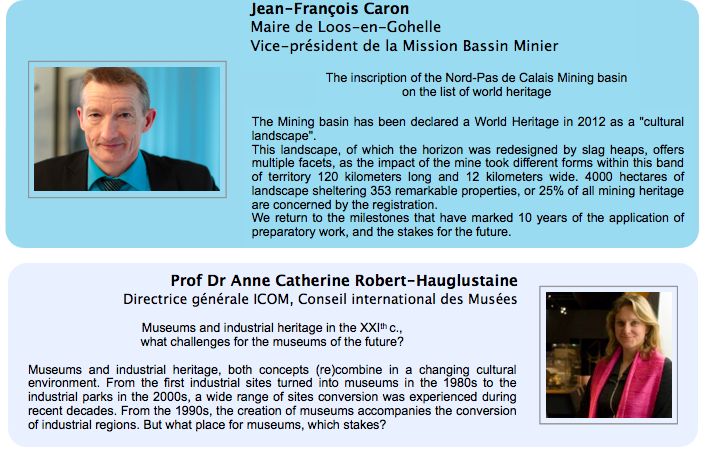
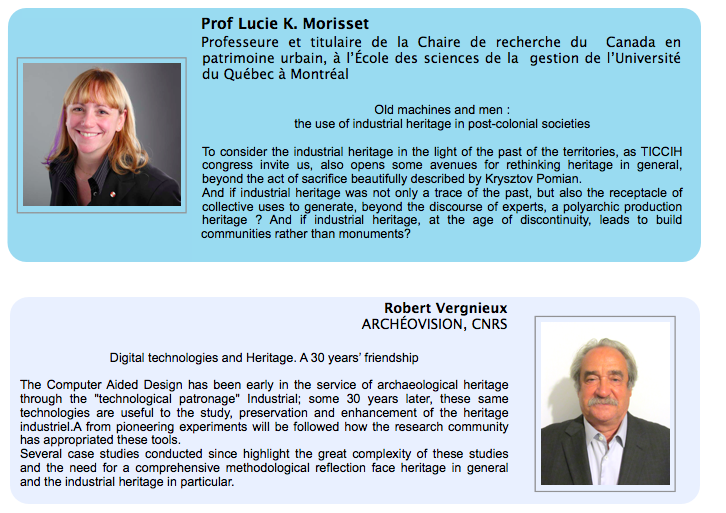
___________
MAP:
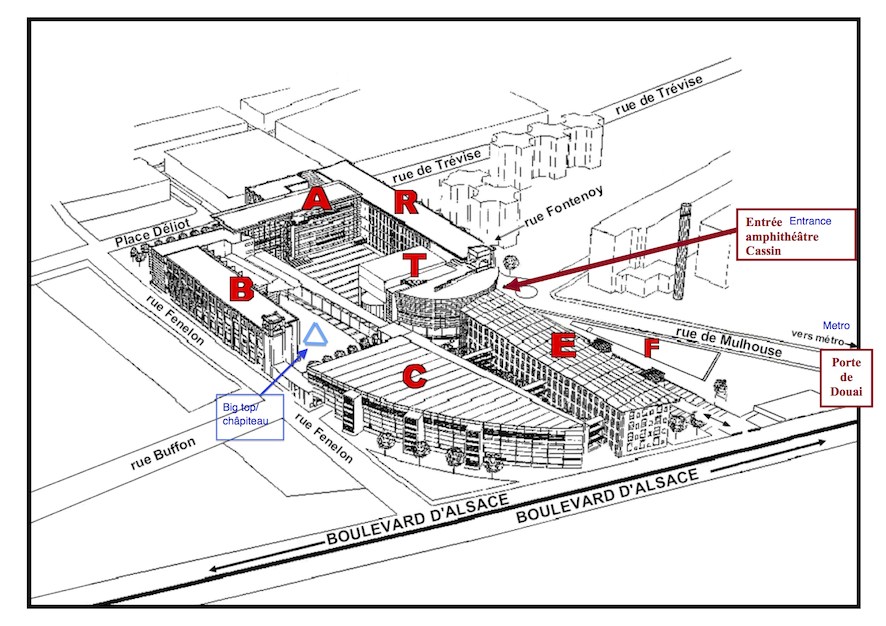
____________________________________
- Post-tour Patrimoine industriel d'Île-de-France, Septembre 12, 13, 14.
Last places available... Registration : contact@perspectivesetorganisation.fr
Download the flyer 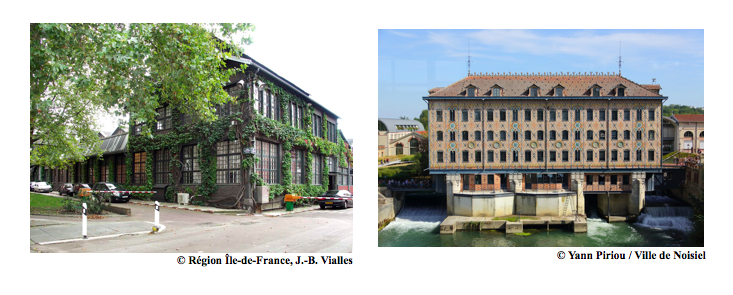 More détails there: http://ticcih-2015.sciencesconf.org/resource/page/id/10
More détails there: http://ticcih-2015.sciencesconf.org/resource/page/id/10
- Pre Tour Calais/Dunkirk September 5 and 6.
Places are available on the bus! Registration : contact@perspectivesetorganisation.fr
Download the flyer

_______________________________________
The beginning of the twenty-first century has seen considerable renewal in how the industrial heritage is considered. Its contribution to our understanding of the past, the way it is approached by academic research, its place in the evolution both of landscapes and of societies, all these are witnessing rapid change. Under the title “Industrial Heritage in the Twenty-First Century, New Challenges”, the sixteenth TICCIH Congress to be held at Lille and in its region in 2015 aims to give a general, world-wide review of the present-day state of industrial heritage, opening up new perspectives on the people involved in it, its achievements and its recognition.
Much effort is still necessary to give industrial heritage the social recognition it deserves, but the Congress will show how, throughout the world, it is a heritage that can make contributions where contemporary demands are concerned, in terms of sustainable development, urban regeneration, architectural invention, local economies, culture and education. The role of the citizen and the part that citizens can play will be at the heart of our appr